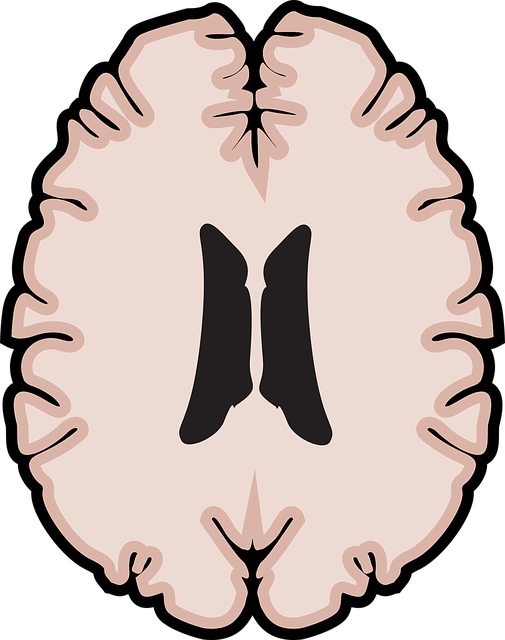Mental health professionals managing complex cases like those with Longmont Adjustment Disorder Therapy (LADT) face daily risks, including intense emotions and interpersonal conflicts. Effective risk management involves proactive identification of hazards, implementation of mitigation strategies, fostering resilience, and promoting positive thinking. Through structured planning and practices such as Mental Health Awareness initiatives, Stress Management Workshops, Mind Over Matter self-care, and Healthcare Provider Cultural Competency Training, therapists can enhance emotional intelligence, improve client outcomes, reduce burnout, and ensure long-term career sustainability while providing safe and effective LADT care.
In the dynamic field of mental health, effective risk management is paramount. This article guides Longmont Adjustment Disorder therapy professionals through a structured approach, ensuring safe and supportive treatment environments. We explore key aspects such as understanding risk dynamics in therapy, identifying hazards from client interactions, crafting tailored mitigation strategies, and implementing best practices for comprehensive care. By adopting these methods, mental health practitioners can enhance patient outcomes and foster resilient therapeutic settings.
- Understanding Risk Management in Mental Health Practice
- Identifying Potential Risks and Hazards in Therapy Sessions
- Developing a Comprehensive Risk Mitigation Plan
- Implementing Strategies for Safe and Effective Care
Understanding Risk Management in Mental Health Practice

Mental health professionals encounter a myriad of risks daily, from managing intense emotions to navigating complex client scenarios. Effective risk management is not just a best practice; it’s essential for ensuring the well-being of both practitioners and their clients. This proactive approach involves recognizing potential hazards, implementing strategies to mitigate them, and fostering an environment that promotes resilience and positive thinking.
For instance, therapists in Longmont Adjustment Disorder Therapy may face challenges related to managing high-stress situations or dealing with clients experiencing severe anxiety. Through robust risk management planning, professionals can enhance their emotional intelligence, enabling them to respond effectively while prioritizing their mental health. This includes adopting strategies for self-care, setting boundaries, and seeking support when needed, ultimately contributing to improved client outcomes and a more sustainable career in the long run.
Identifying Potential Risks and Hazards in Therapy Sessions

Mental health professionals often find themselves navigating complex emotional landscapes during therapy sessions, which necessitates a proactive approach to risk management. Identifying potential risks and hazards is the first step in creating a safe and supportive environment for both clients and practitioners. These risks can manifest in various forms, from clinical challenges like exacerbating existing mental health conditions to interpersonal issues such as boundary crossings or power dynamics affecting the therapeutic relationship.
For instance, in Longmont Adjustment Disorder Therapy sessions, professionals must be attuned to signs of distress or potential triggers that could lead to adverse reactions. Burnout prevention is a critical aspect of risk management, as the demanding nature of mental health work can contribute to chronic stress and emotional exhaustion. Regular Stress Management Workshops Organization initiatives within therapeutic practices can help mitigate these risks by fostering Mental Health Awareness and equipping professionals with effective coping strategies.
Developing a Comprehensive Risk Mitigation Plan

Mental health professionals are often on the frontlines when it comes to managing complex client cases and mitigating risks. A crucial aspect of their practice is developing a comprehensive risk mitigation plan, which can significantly enhance patient outcomes and ensure clinical safety. This involves a systematic approach to identifying potential hazards and implementing strategies to minimize their impact.
By integrating Longmont Adjustment Disorder Therapy techniques, professionals can tailor interventions for clients struggling with stress and emotional dysregulation. Moreover, incorporating Stress Reduction Methods and Emotional Well-being Promotion Techniques allows therapists to equip individuals with coping mechanisms, fostering resilience and improving overall mental health. Empathy Building Strategies are essential in establishing strong therapeutic alliances, encouraging open communication, and enhancing the effectiveness of risk management plans.
Implementing Strategies for Safe and Effective Care

Implementing strategies for safe and effective care is paramount for mental health professionals, especially those treating conditions like Longmont Adjustment Disorder Therapy. This involves integrating evidence-based practices that prioritize both patient safety and provider well-being. By fostering a culture of Mind Over Matter principles, healthcare providers can enhance their ability to manage complex cases while mitigating the risks associated with burnout.
Self-Care Practices play a crucial role in this process. Mental health professionals must be encouraged and supported in adopting sustainable Self-Care routines to maintain their own mental and emotional resilience. Additionally, Healthcare Provider Cultural Competency Training is essential for delivering culturally sensitive care, ensuring that patients from diverse backgrounds feel understood and respected. This training equips professionals with the skills to navigate complex cultural dynamics, thereby enhancing patient outcomes and reducing potential risks.
Mental health professionals, much like navigating a complex landscape, must anticipate and manage risks effectively to ensure patient safety. By understanding the potential hazards, from confidentiality breaches to crisis interventions, therapists can develop robust risk mitigation plans. Implementing strategies that blend practical procedures and empathetic care fosters a secure environment for both client and practitioner, ultimately enhancing the therapeutic process. For those seeking Longmont Adjustment Disorder Therapy or similar services, prioritizing risk management ensures a foundation of safety and support.














